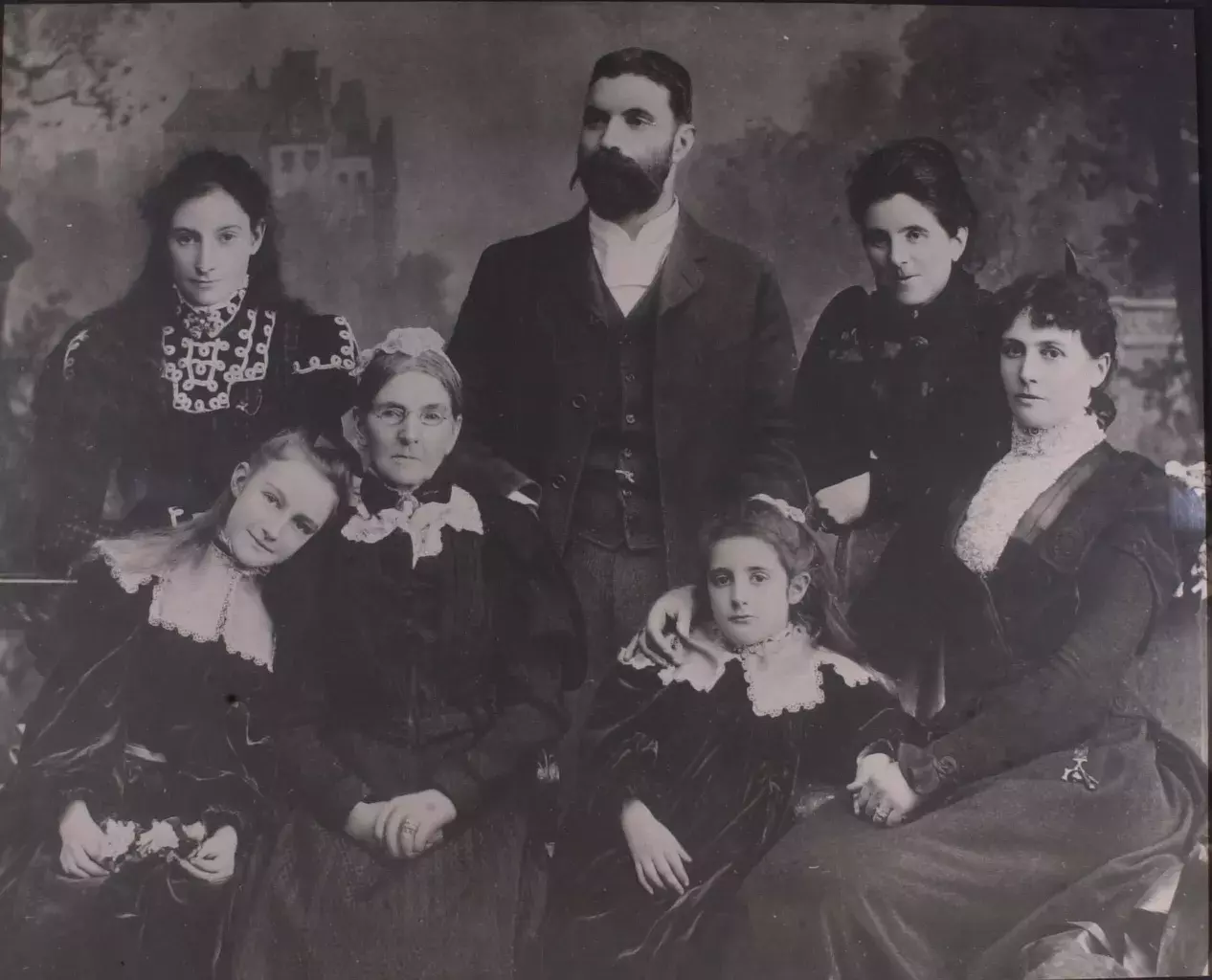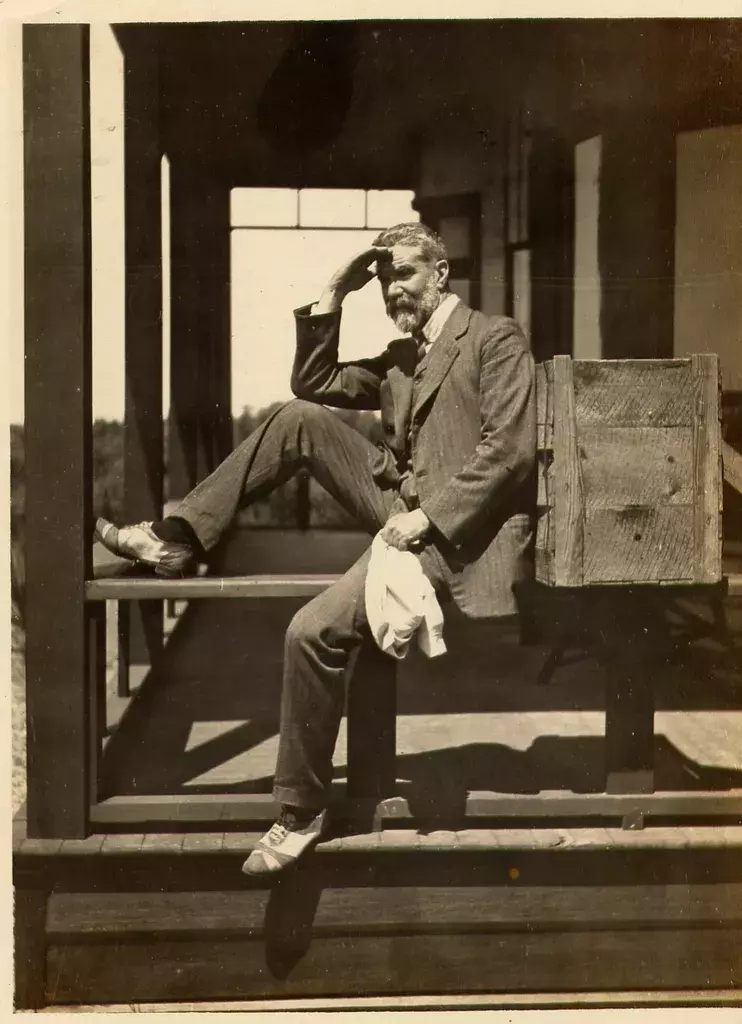ALFRED DEAKIN
Alfred Deakin became Australia's second prime minister after Edmund Barton resigned to take up a seat on the High Court. His second term in office came after his Liberal Protectionist Party withdrew support from George Reid's Liberal Free Trade Party. His third term in office came after his Liberal Party withdrew support from Andrew Fisher's Labour Party.
3 August 1856
Melbourne, Victoria
7 October 1919
Melbourne, Victoria
Pattie Deakin
Liberal
Photo: NLA
About
Alfred Deakin was a successful national public figure with a deeply reflective and intellectual inner life. In one of his many notebooks Deakin acknowledged ‘the aloofness brought about by study and musings…always seemed nearer the centre of my life than all else I did.’

Deakin family portrait, 1900. Photo: Deakin University
Deakin was educated at Melbourne Grammar School and later studied law at the University of Melbourne. He was encouraged to enter politics by the proprietor of The Age newspaper David Syme, and in 1879 won the Victorian state seat of West Bourke. Deakin held a number of ministerial portfolios between 1883 and 1890 including a period as Premier.
As Minister for Water Supply he travelled to India and America to study irrigation and was a driving force behind the Murray Irrigation Scheme. Deakin became a prominent figure in the constitutional conventions of 1891 and 1897-98.
In 1900 Deakin, along with Barton, was part of the delegation to London that steered the Australian Colonies Government Bill through the British Parliament. Deakin was Attorney-General in the Barton government and succeeded Barton as prime minister.
Deakin held office three times between 1903 and 1910, retiring from politics in 1913. Despite his enigmatic qualities, Deakin was one of the central players in shaping the early years of Commonwealth government and successfully merged the anti-Labour parties.
MILESTONES
360° VIEW
Parliament
Deakin’s second period in office from 1905 to 1908 was one of relative stability due to Labour Party support. He was able to embark on establishing some fundamental legislation that extended Commonwealth control over areas previously under state authority.
This parliamentary session was dominated by the issue of ‘New Protection’ where local manufacturers would be given a certain level of protection provided they gave their workers ‘fair and reasonable’ wages. The new Conciliation and Arbitration Court, in a case relating to the Sunshine Harvester Company, determined that a reasonable wage should maintain a ‘human being in a civilized community.’
Despite a successful High Court appeal against the decision, the ‘basic wage’ adjusted against cost of living was established. In 1908 the old age pension was introduced, the Seat of Government Bill finally passed and Deakin lobbied for and used the visit by the American ‘Great White Fleet’ to pressure Great Britain on the creation of an Australian Navy. During Deakin’s third and final period as prime minister, and leading up to the election in 1910, the Defence Act introducing compulsory military training was passed.

Photo: Deakin University

